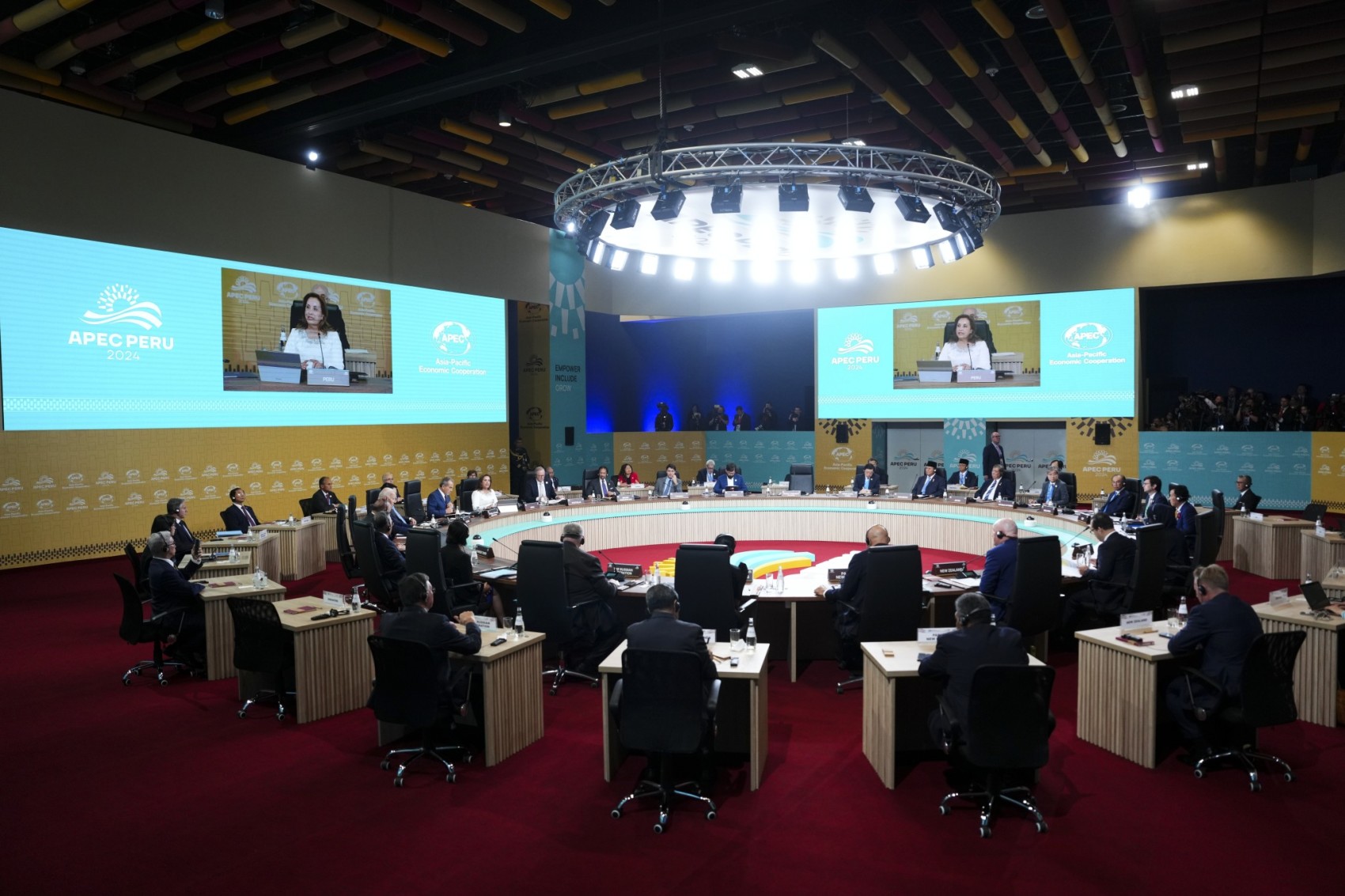APEC Summit in Peru: Global Leaders Gather Amid Political Tensions
Leaders from Pacific Rim nations convened in Lima, Peru, on Friday for the Asia-Pacific Economic Cooperation (APEC) summit, the first major international meeting following U.S. President Donald Trump’s election victory. The annual assembly includes representatives from 21 economies that collectively account for nearly two-thirds of global GDP and half of the world’s trade volume. As global dynamics shift with new U.S. leadership, discussions on inclusive growth and economic cooperation remain critically relevant.
A High-Stakes Gathering
The significant gathering saw outgoing U.S. President Joe Biden take part alongside key figures such as China’s President Xi Jinping, Canada’s Prime Minister Justin Trudeau, Indonesia’s President Prabowo Subianto, Japan’s Prime Minister Shigeru Ishiba, and Australia’s Prime Minister Anthony Albanese. The leaders met against the backdrop of uncertainty regarding how the incoming U.S. administration may reshape international relations.
During the morning session, leaders participated in closed-door discussions following President Dina Boluarte’s opening remarks. Boluarte emphasized her administration’s commitment to fostering inclusive growth and reducing informal employment across APEC economies.
“Our objective is to level the playing field, providing all the necessary tools for inclusion in social, financial and commercial spaces,” she stated. “Growth starts with inclusion, and this is only possible through the empowerment of the citizenry that is the motor of our economies.”
Focus on Climate and Economic Challenges
This summit marks one of Biden’s final international engagements before leaving office. White House officials assert that Biden’s attendance, along with his upcoming visit to Brazil for the Group of 20 meeting, will address critical topics, such as climate change, global infrastructure, and counter-narcotics strategies.
Biden’s schedule includes key bilateral meetings with leaders such as Xi and Japan’s Ishiba. Discussions are set to tackle not just regional cooperation but also pressing global issues, including continued support for Ukraine amid its conflict with Russia and diplomacy surrounding Israel’s conflicts in Lebanon and Gaza.
However, analysts predict Xi’s presence may overshadow Biden during this summit. In his agenda, Xi met with South Korea’s President Yoon Suk Yeol Thursday evening to address economic cooperation and regional security matters.
Economic Developments in Latin America
Xi inaugurated the Chancay port, a landmark project costing $1.3 billion, highlighting the ongoing shift in Latin America towards stronger ties with China. The new port, located 60 kilometers north of Lima, promises to expedite shipping times to China and presents a compelling vision of increased trade throughput—per reports, it could save 10 days in shipping times. Peru’s economy minister noted that neighboring countries are already adjusting their supply chains to leverage this new infrastructure, with total investments projected to exceed $3.5 billion.
Despite the enthusiasm surrounding the port’s construction, local sentiments reveal concerns over its impact. Residents fear that the development threatens their livelihoods, particularly fishermen, who feel their rights have been compromised by large-scale investments that do not benefit their community.
Domestic Unrest Amid Global Discussions
As leaders gathered, discontent simmered on the streets of Lima. The middle-class neighborhood of San Borja, just outside the convention center, witnessed protests against rising gang violence and government corruption. Security forces, clad in riot gear, clashed with demonstrators. Protester Maria Melendez voiced her frustrations, saying, “Why would we want APEC here when the investment is just going to line their pockets?”
Amid heavy police presence and memories of past violence during protests, many activists expressed discouragement over participation levels. They called for accountability from Boluarte, whose presidency has faced criticism in the wake of her predecessor’s upheaval.
Business Advisory Council’s Calls for Inclusion
In the afternoon, APEC leaders engaged with members of the Business Advisory Council, which previously met to stress the necessity of inclusive growth. Council chairwoman Julia Torreblanca pointed out the ongoing challenges, stating, “While the global economy remains resilient, APEC economies are grappling with persistent inflation, economic disparities, high interest rates, and the urgent need to increase investments for a green, climate-resilient future.”
The council urged APEC economies to prioritize the needs of micro-, small-, and medium-sized enterprises, especially those led by women and Indigenous entrepreneurs, which are central to fostering inclusive economic practices.
With significant discussions planned and the backdrop of a politically charged environment, this APEC summit presents vital opportunities to set the stage for future collaborations and address the pressing issues that affect both global and regional economies.
For further insights on the implications of this summit, click here to read more about the changing dynamics in global trade relations.
As these global leaders clash and converge in discussions, the world watches closely. Will the outcomes of this summit reinforce past commitments or pave the way for a new era of economic cooperation?
Engage with Us
What are your thoughts on the impact of APEC discussions? Share your insights in the comments below or connect with us on social media to join the conversation surrounding these pivotal issues.
This article captures the complexity and significance of the ongoing APEC summit in Peru, reflecting on economic strategies and local concerns while encouraging community engagement on the topic.

